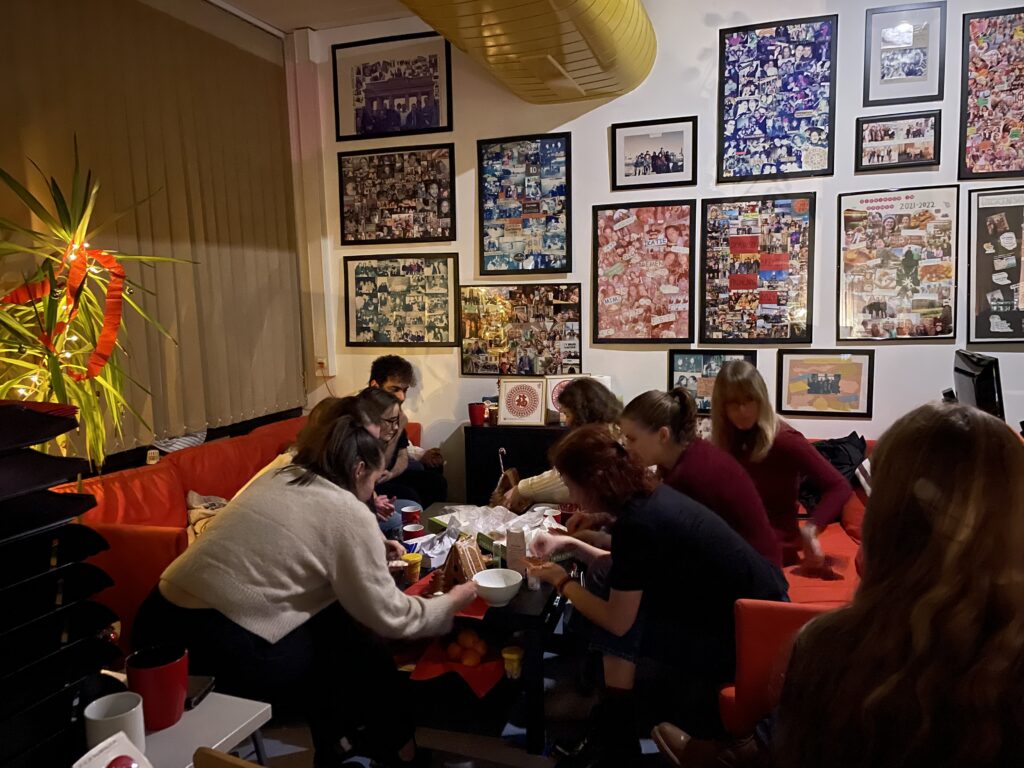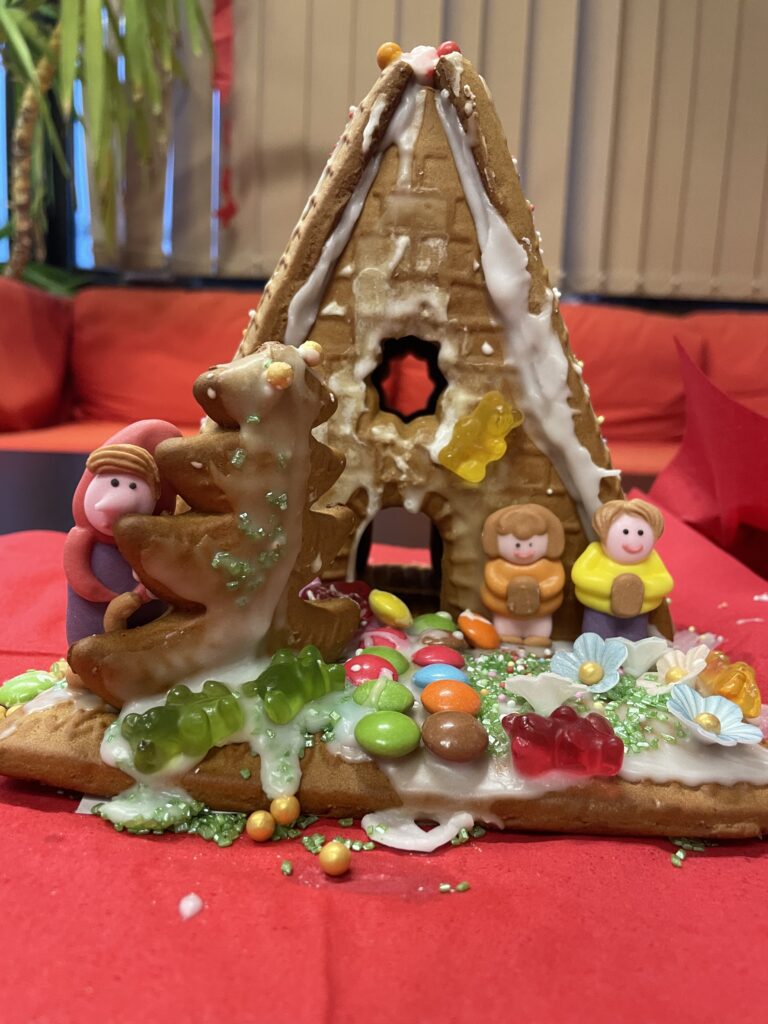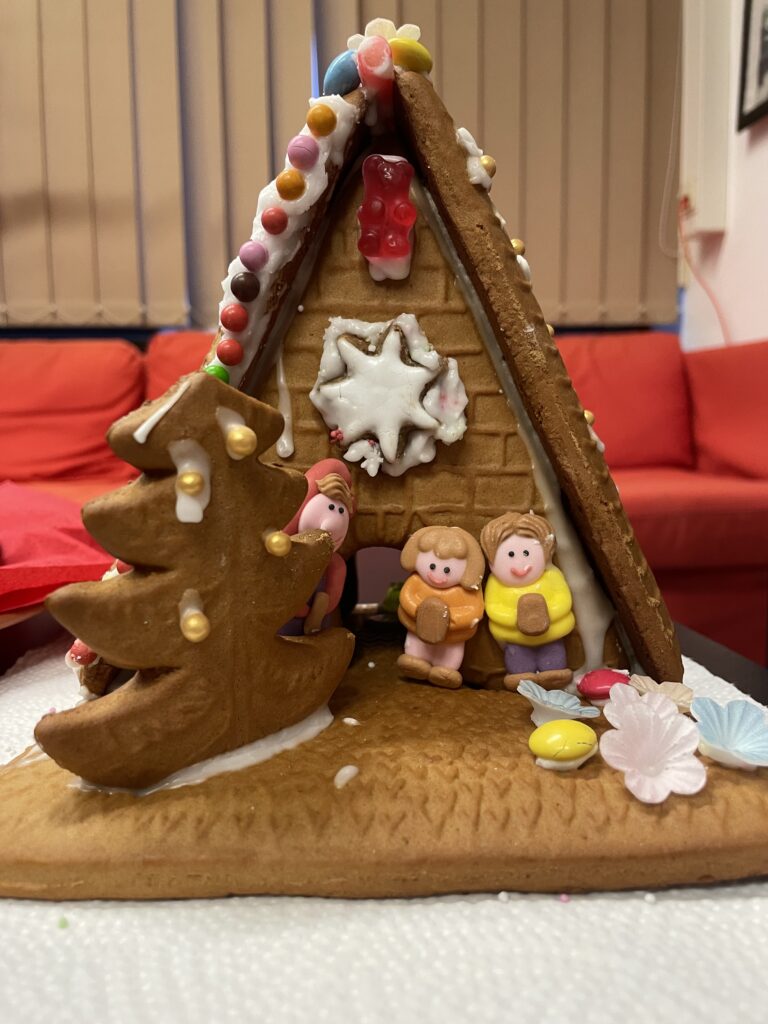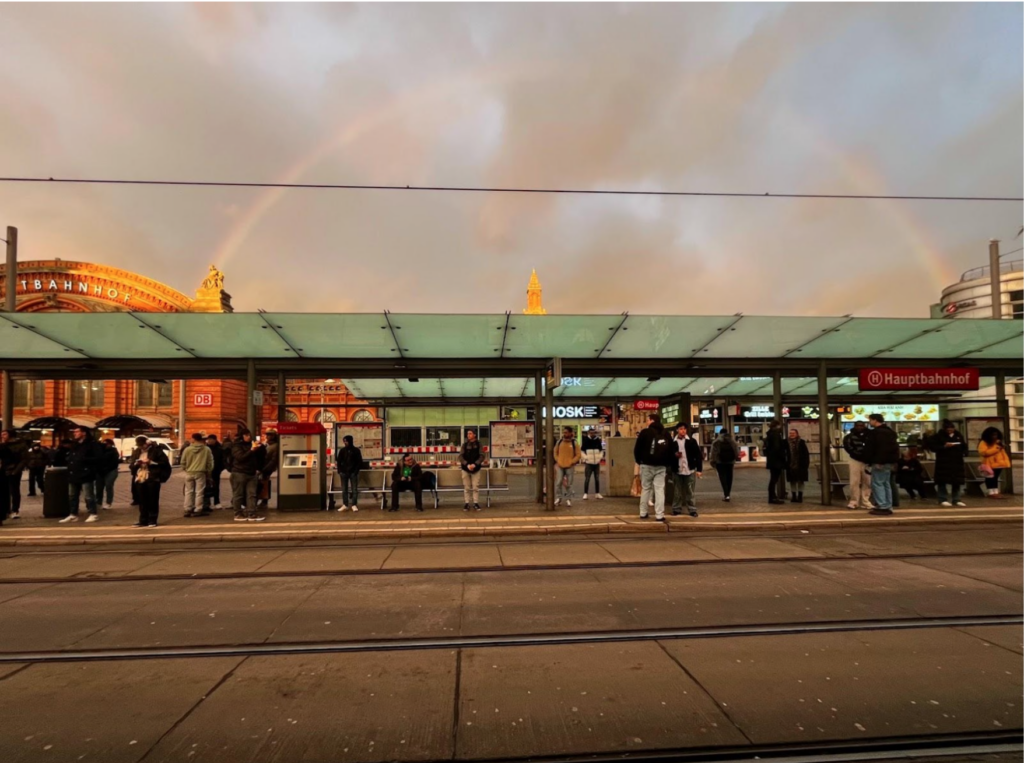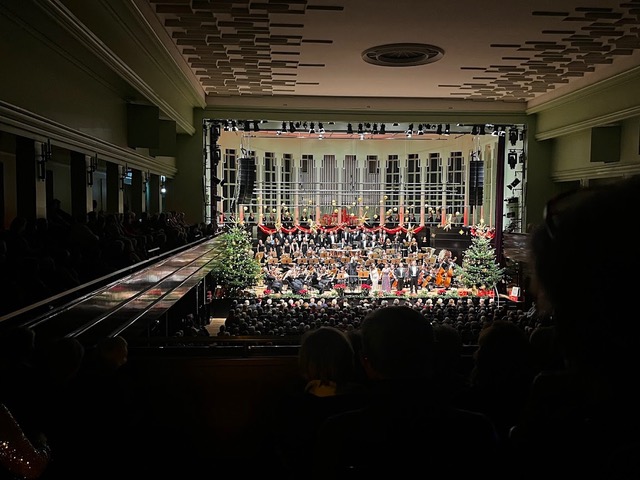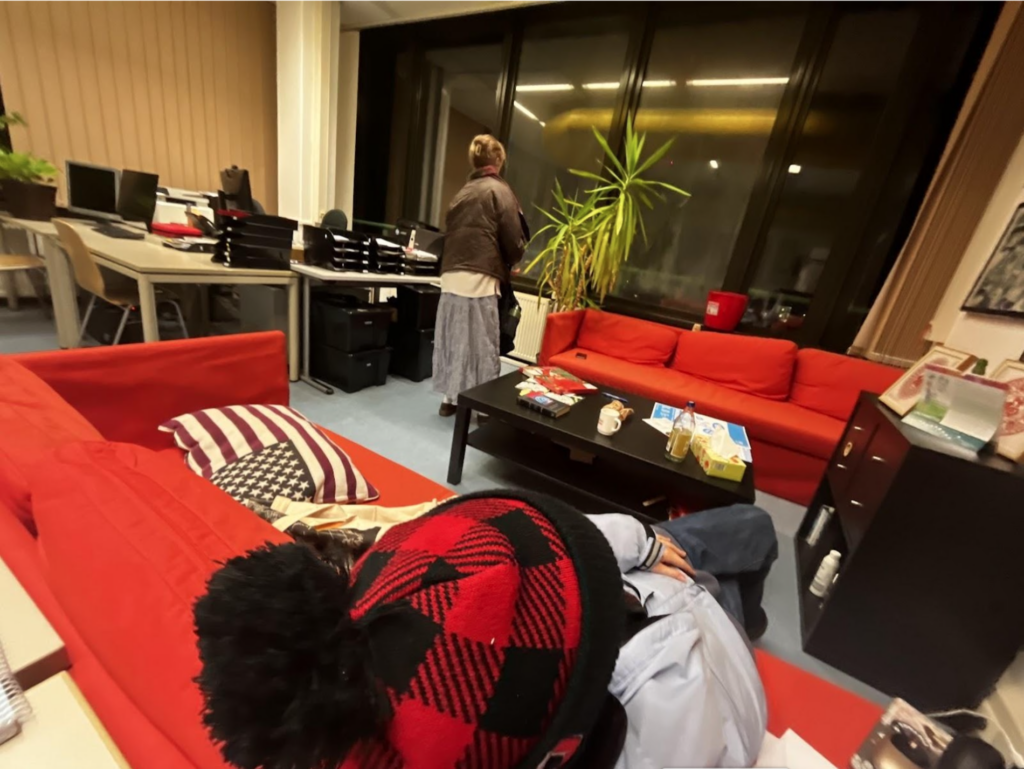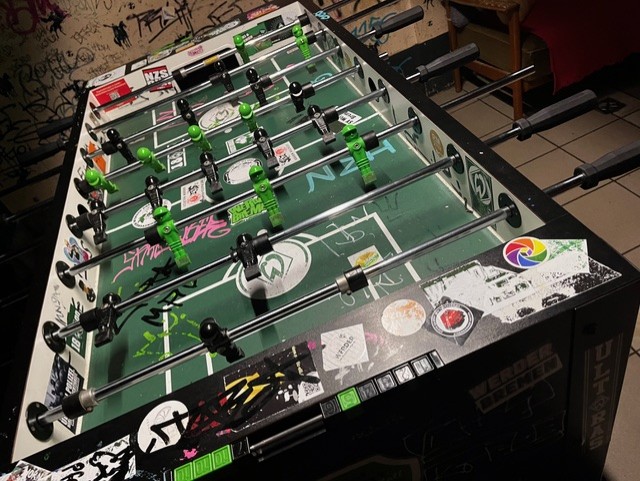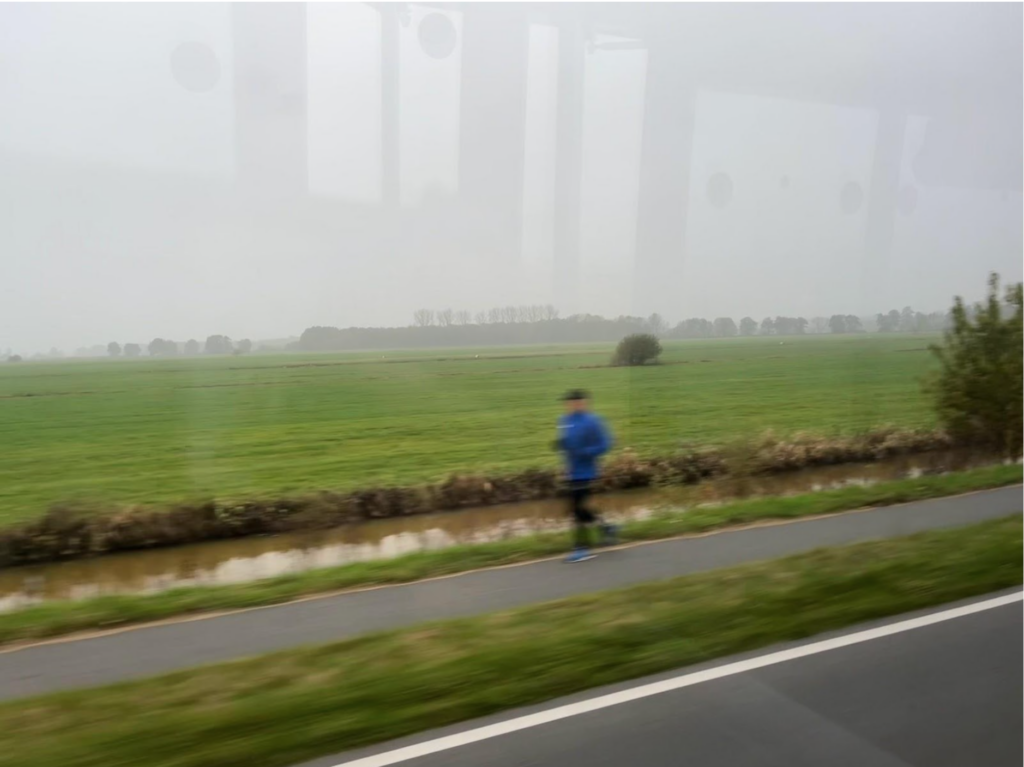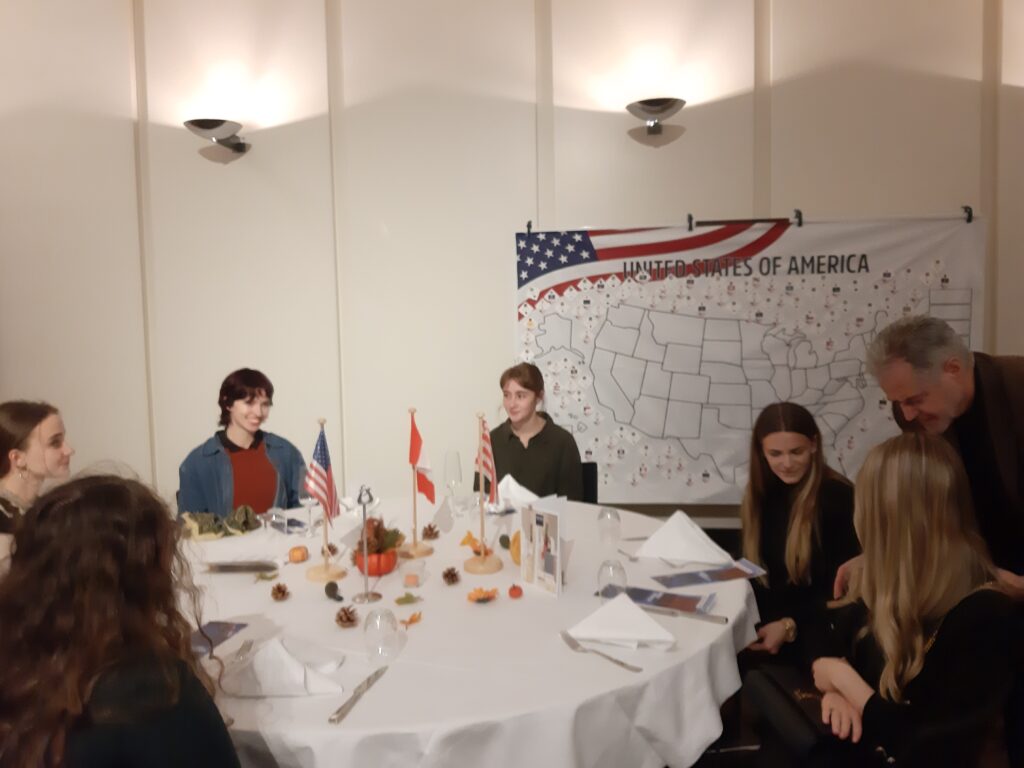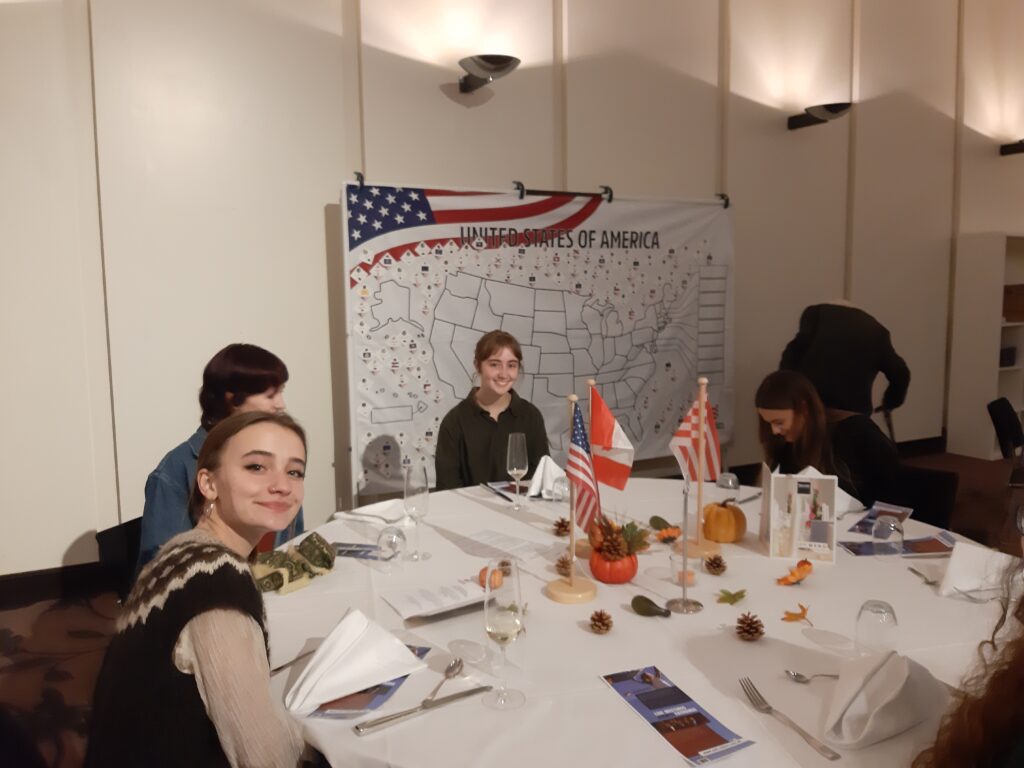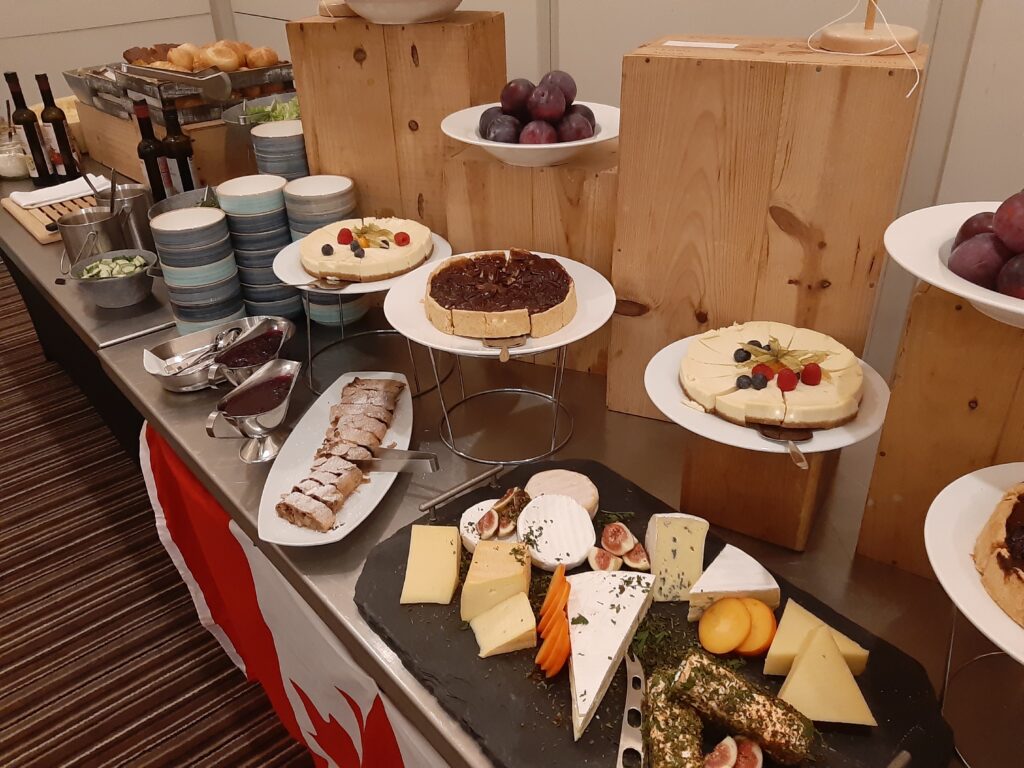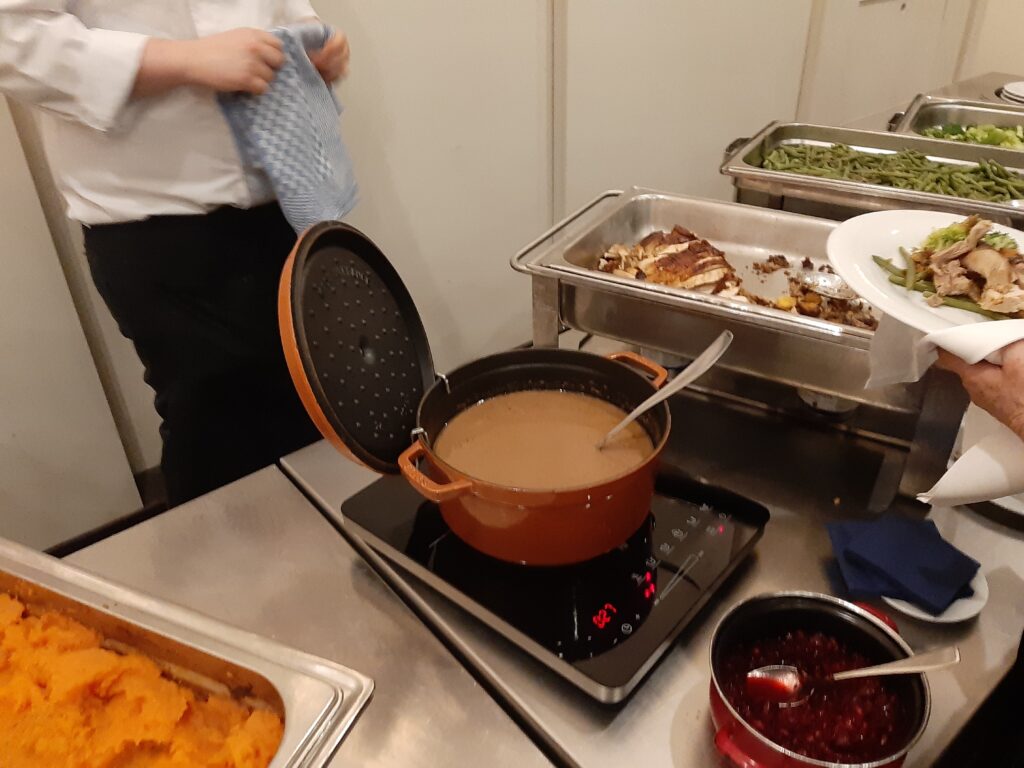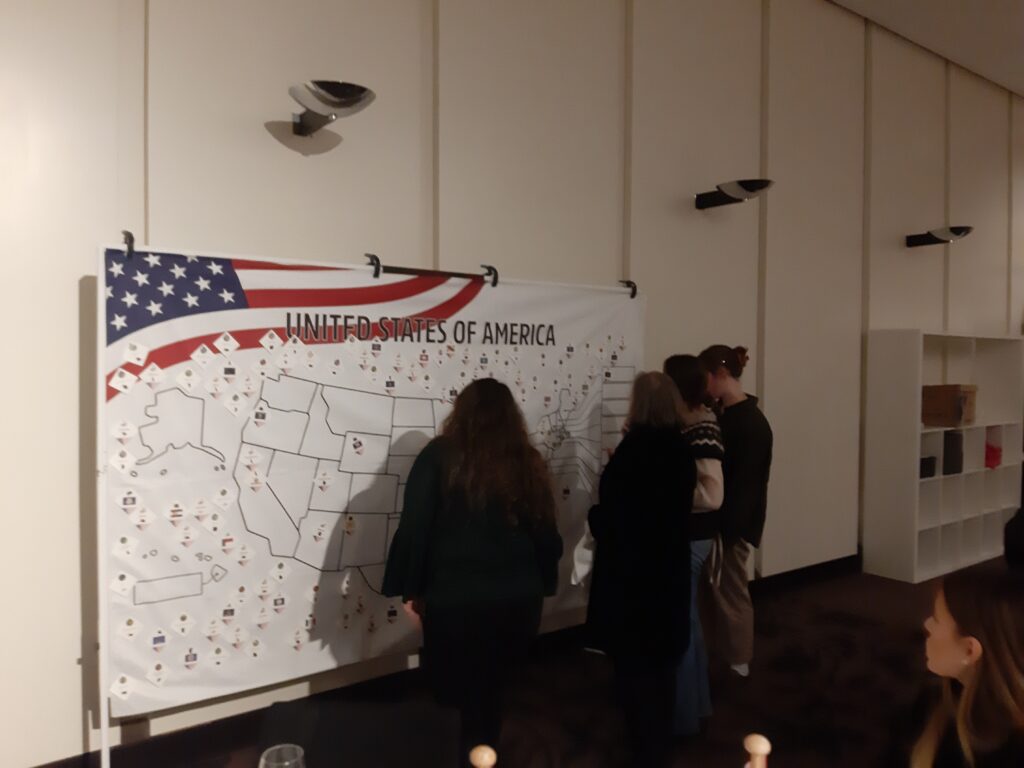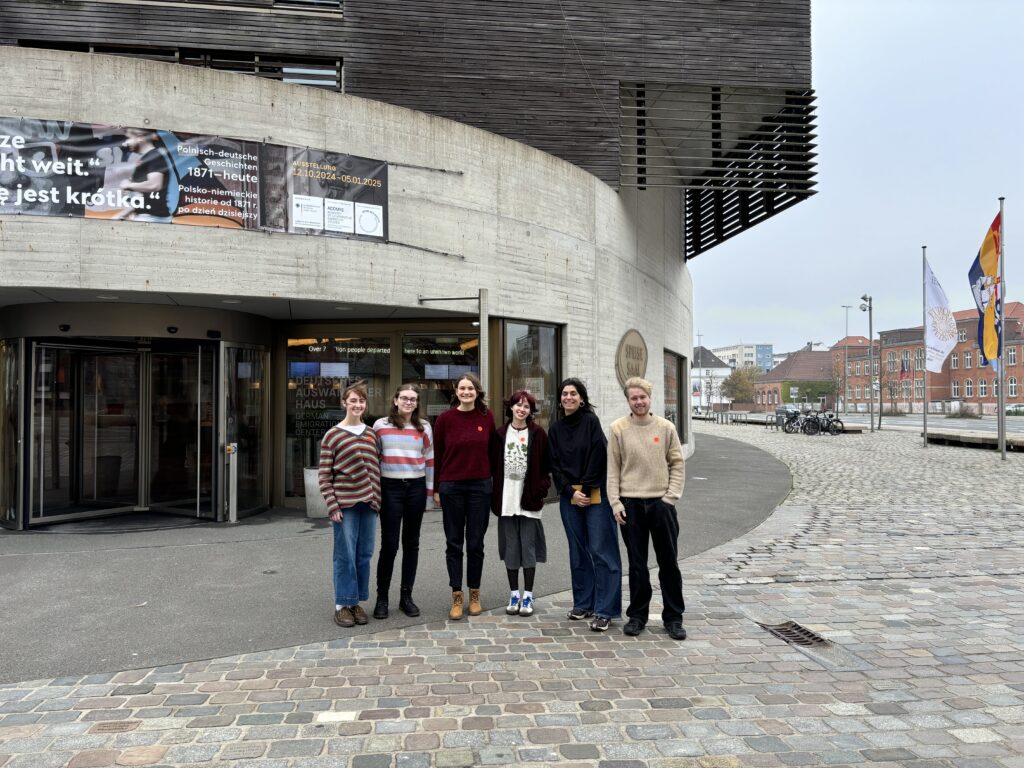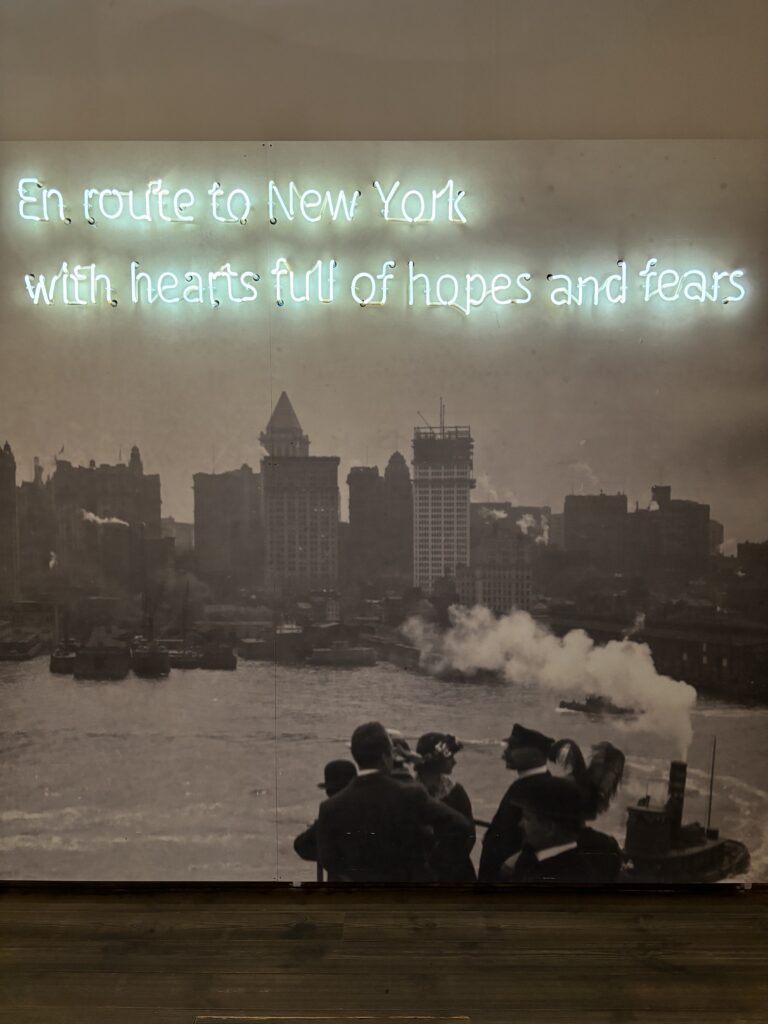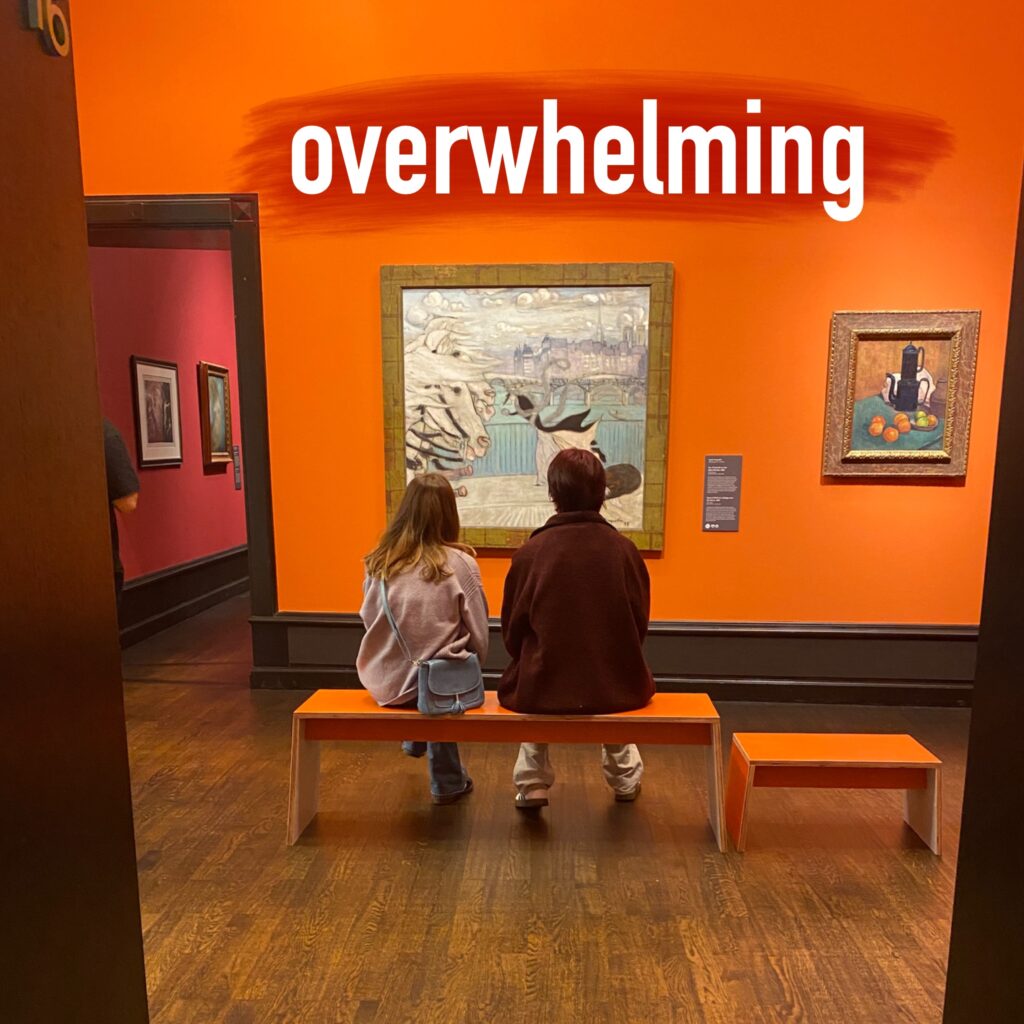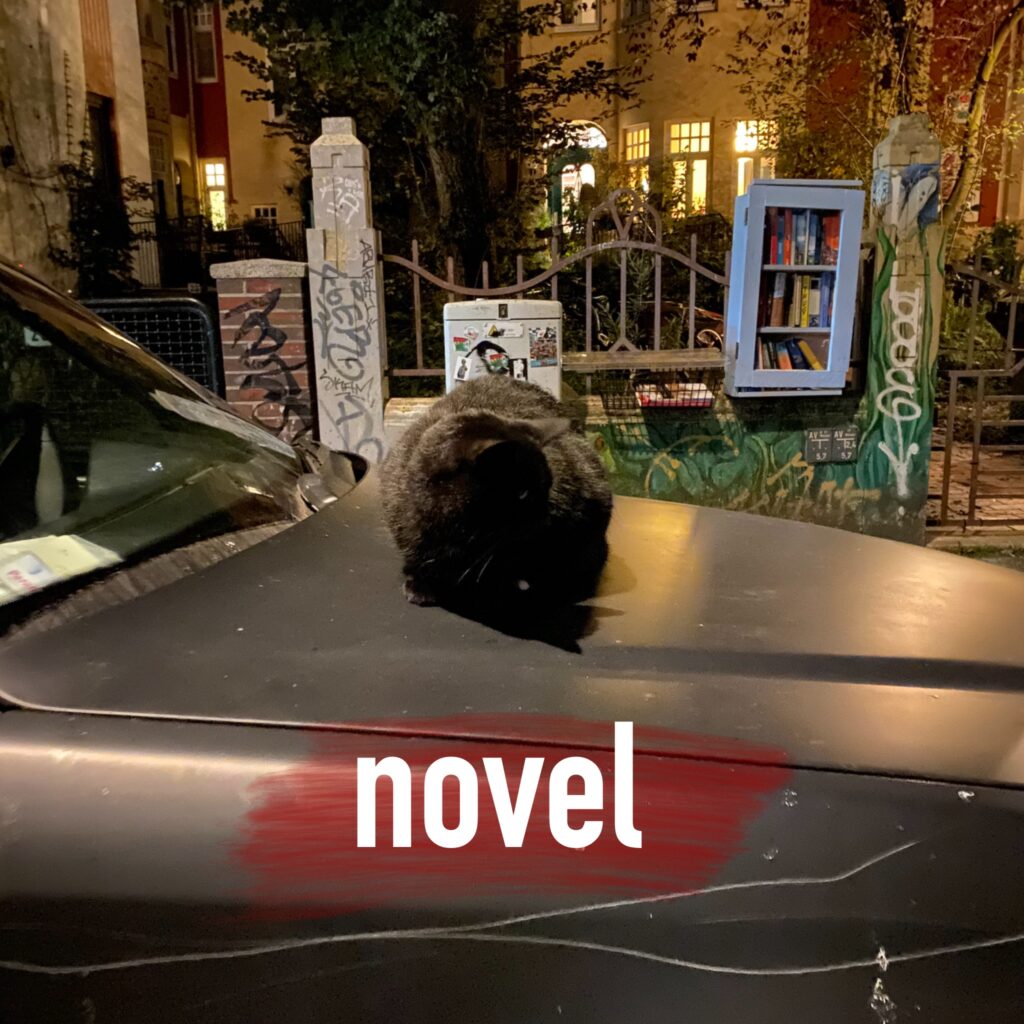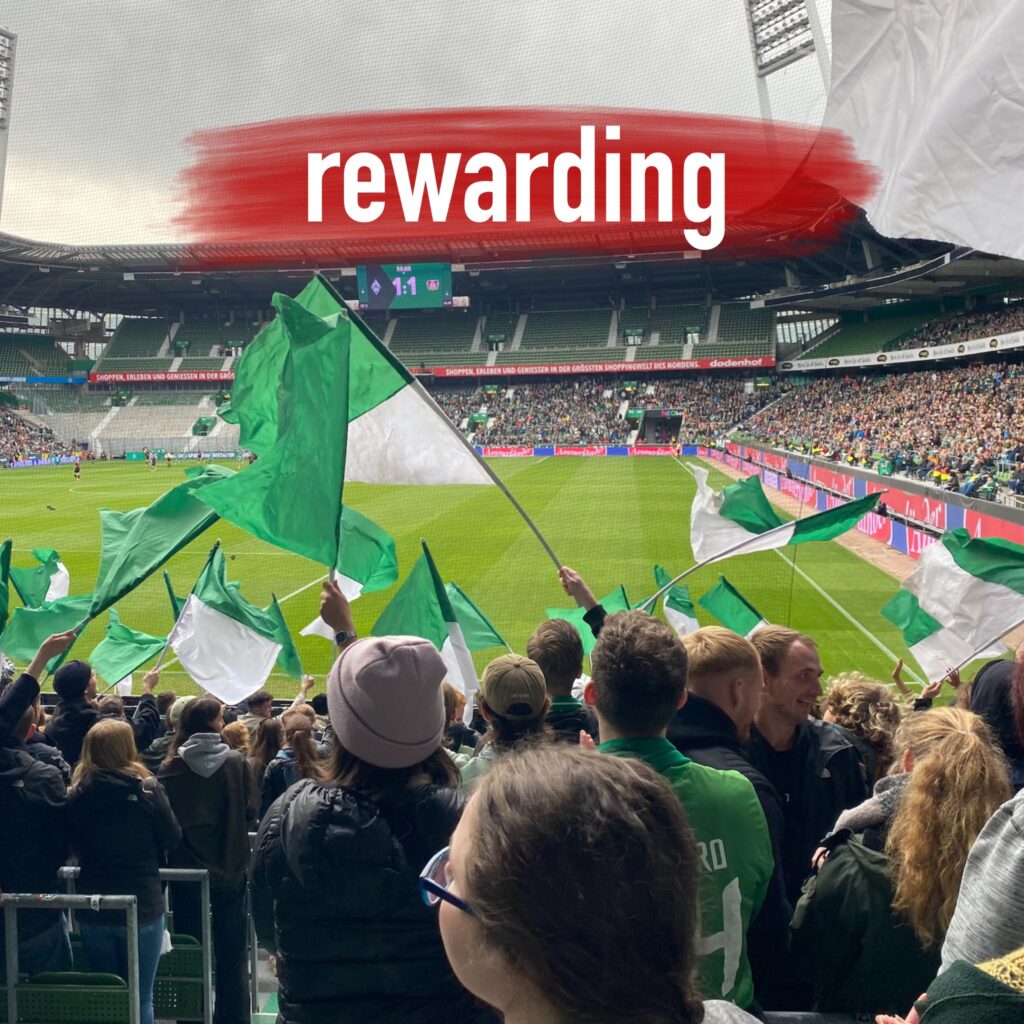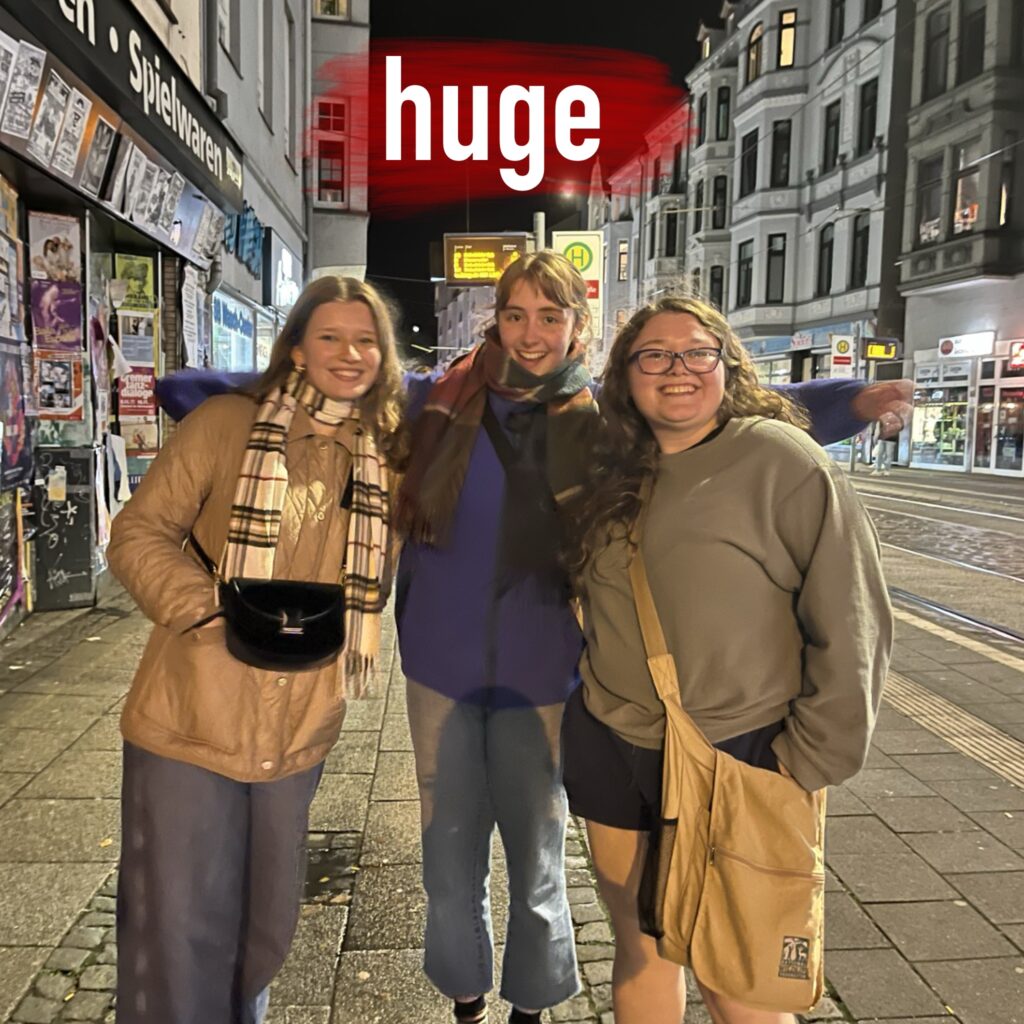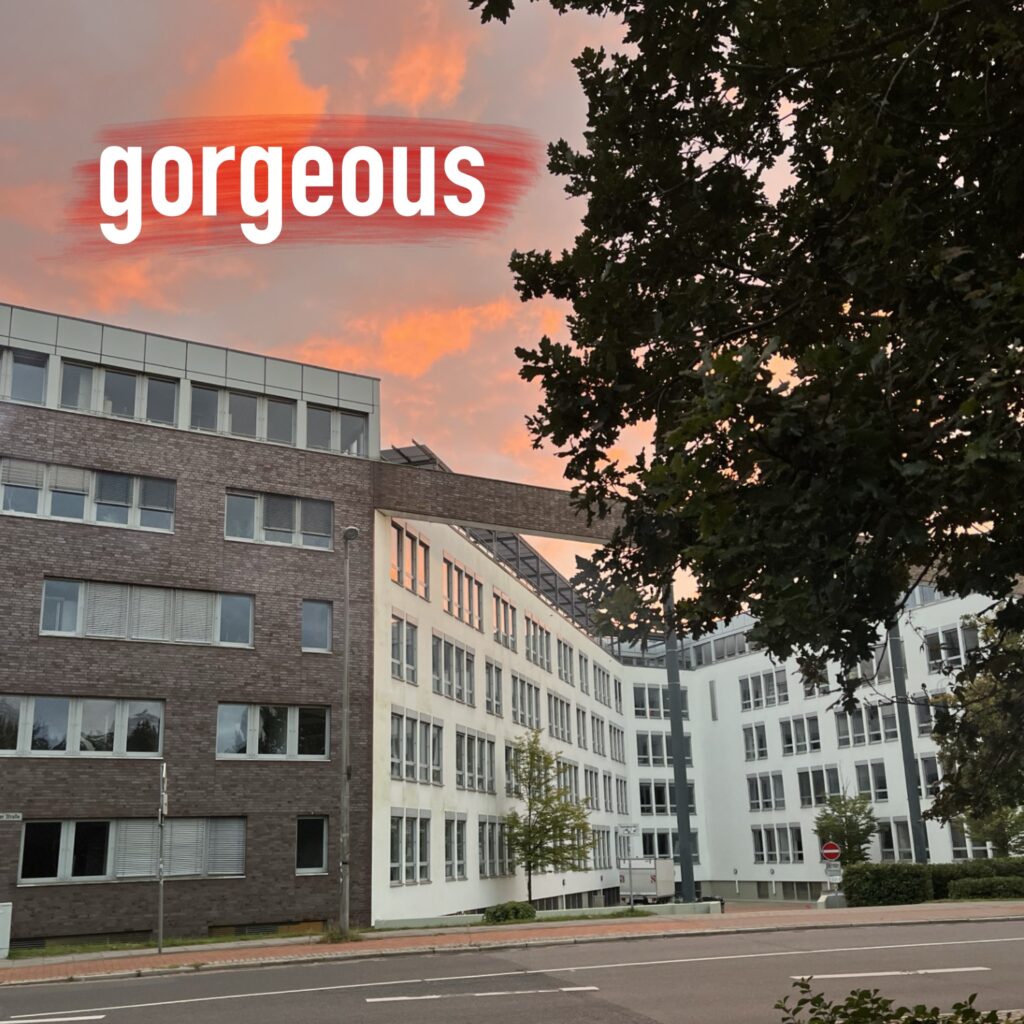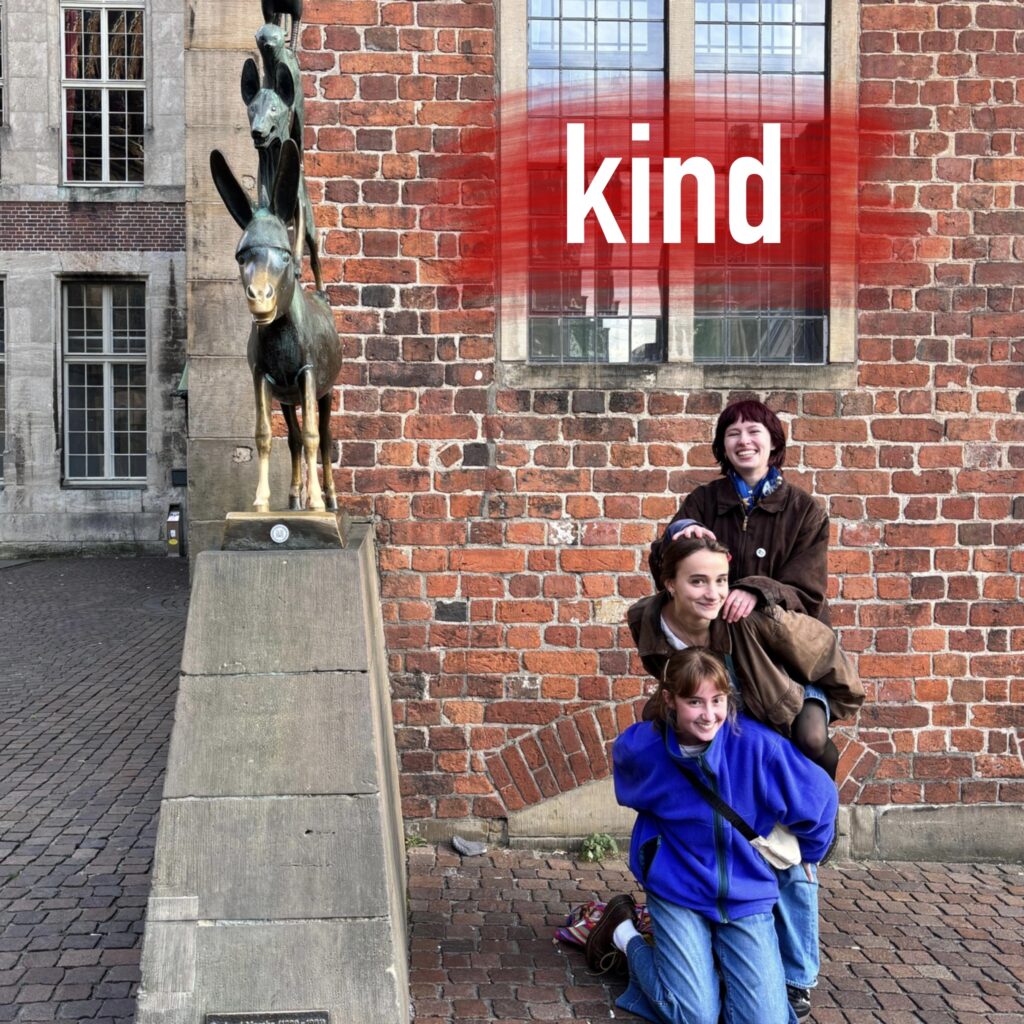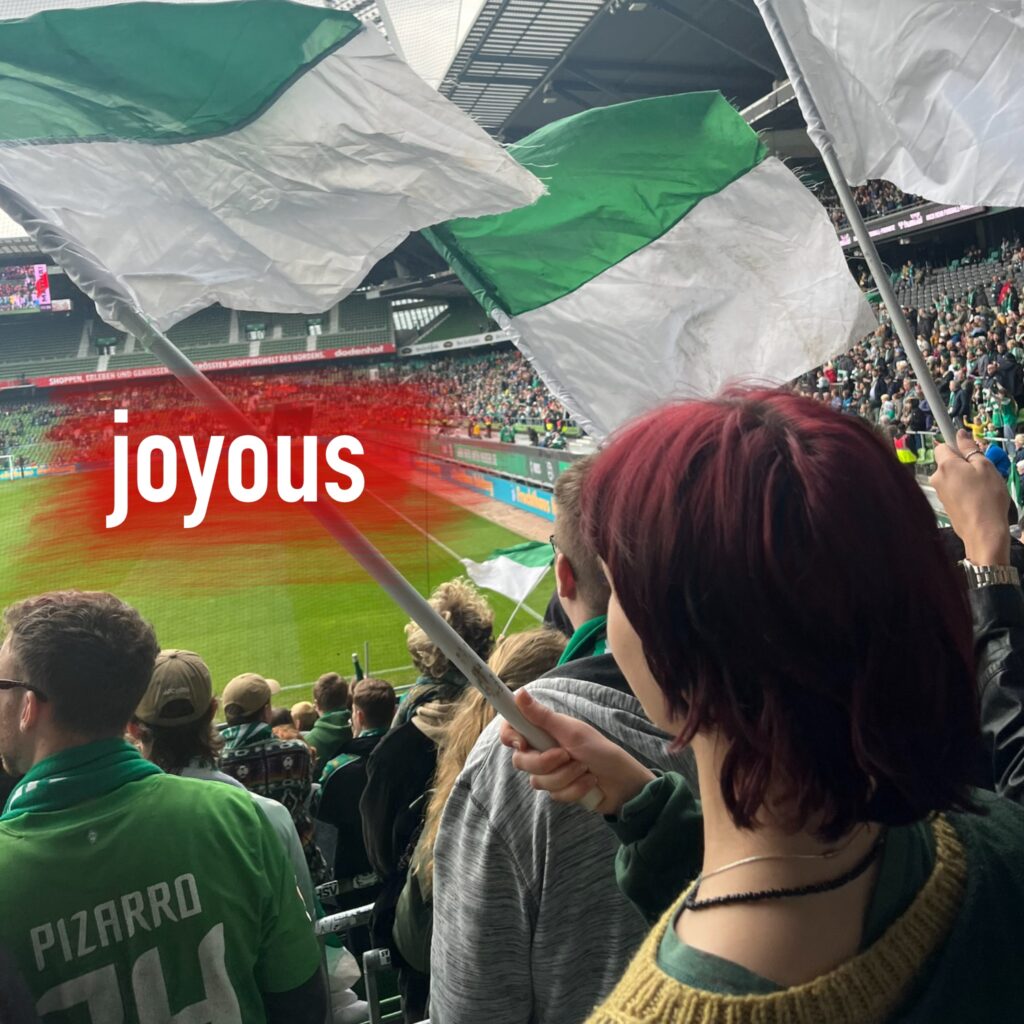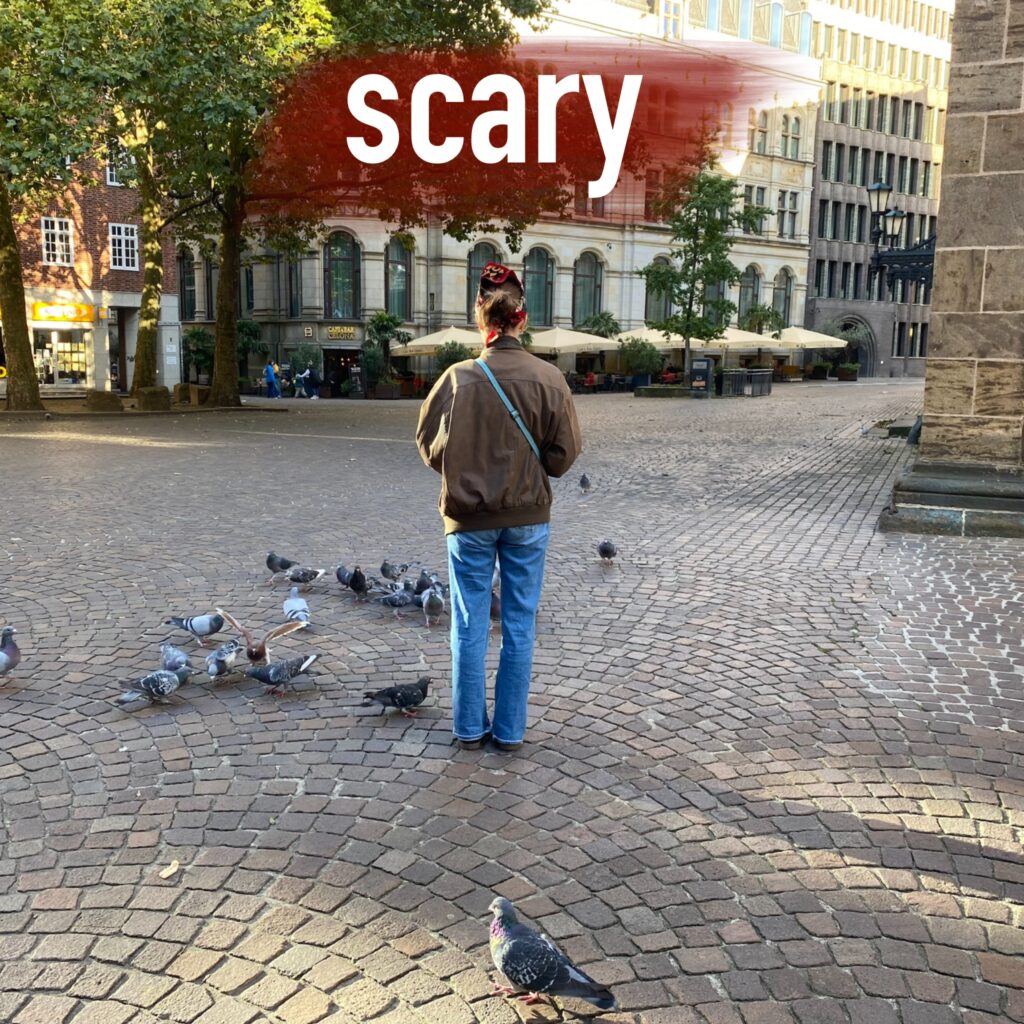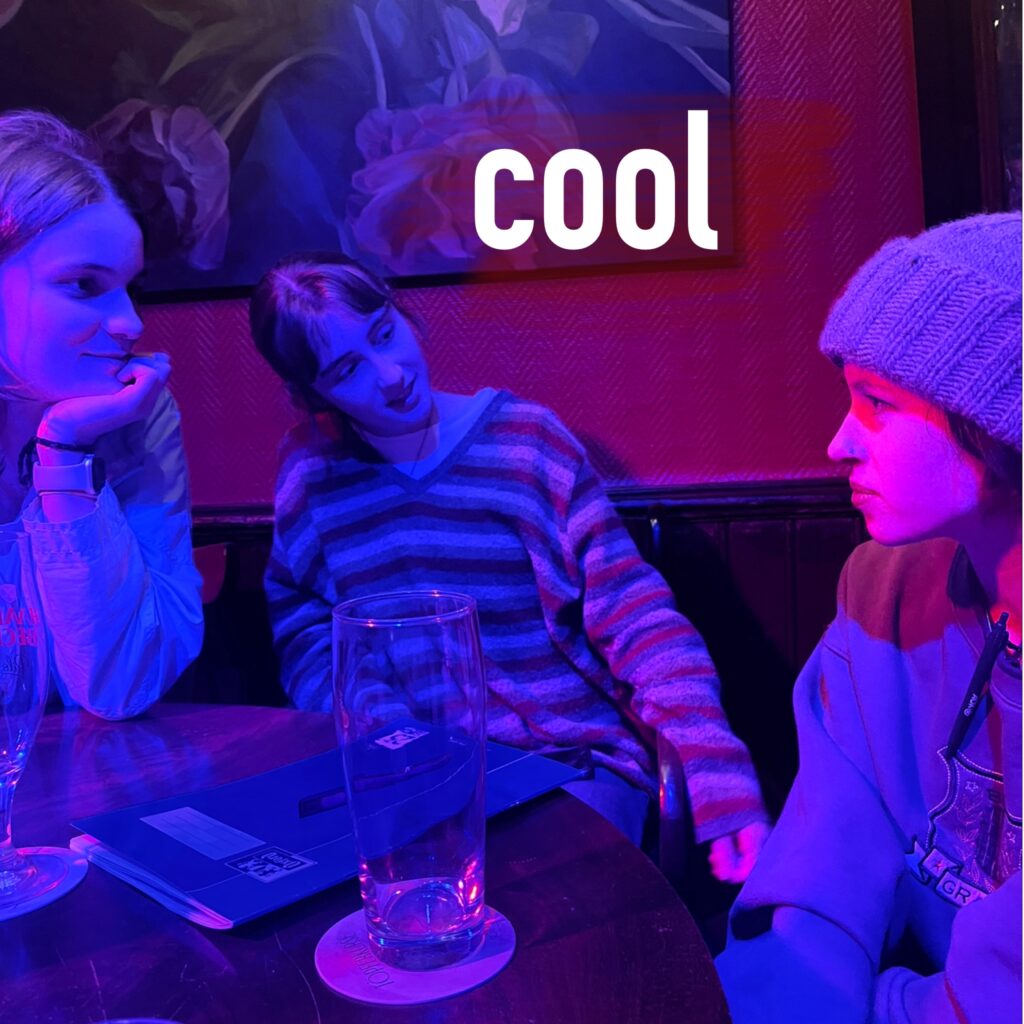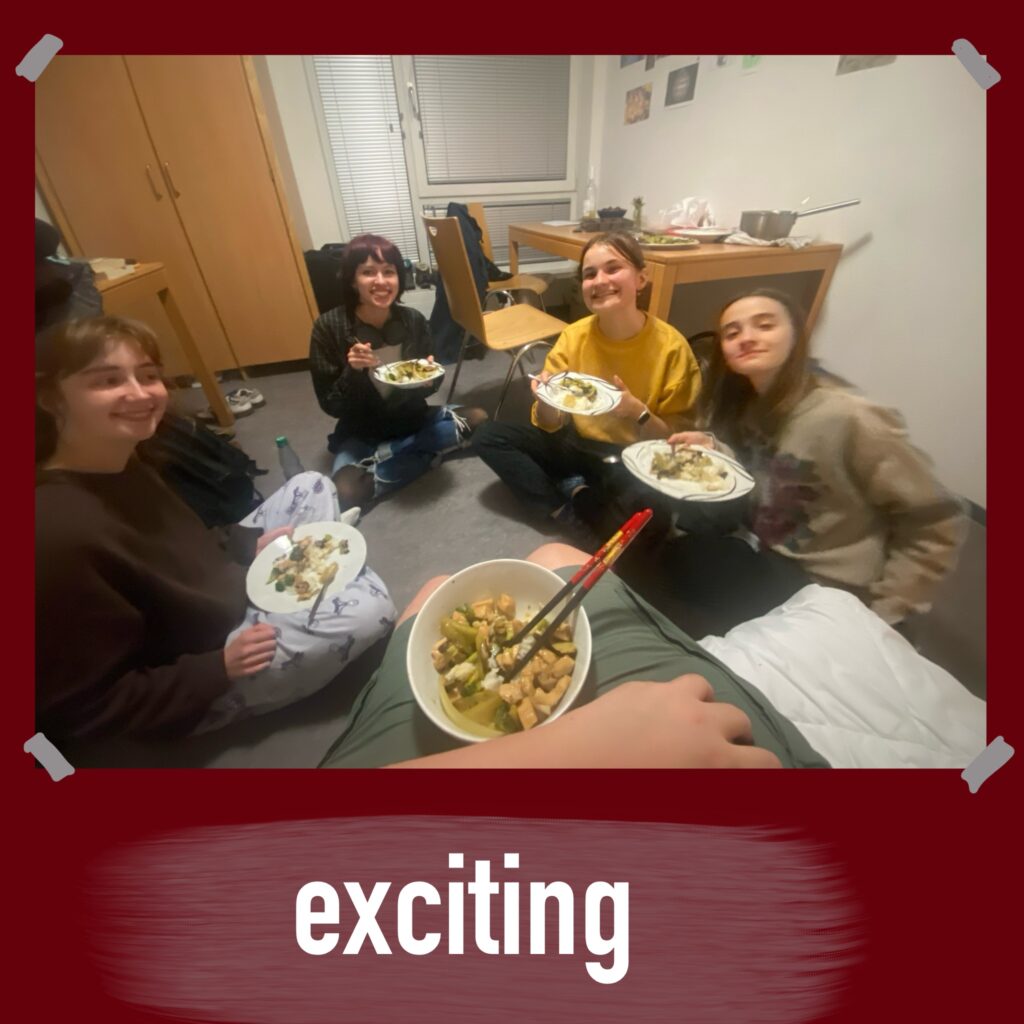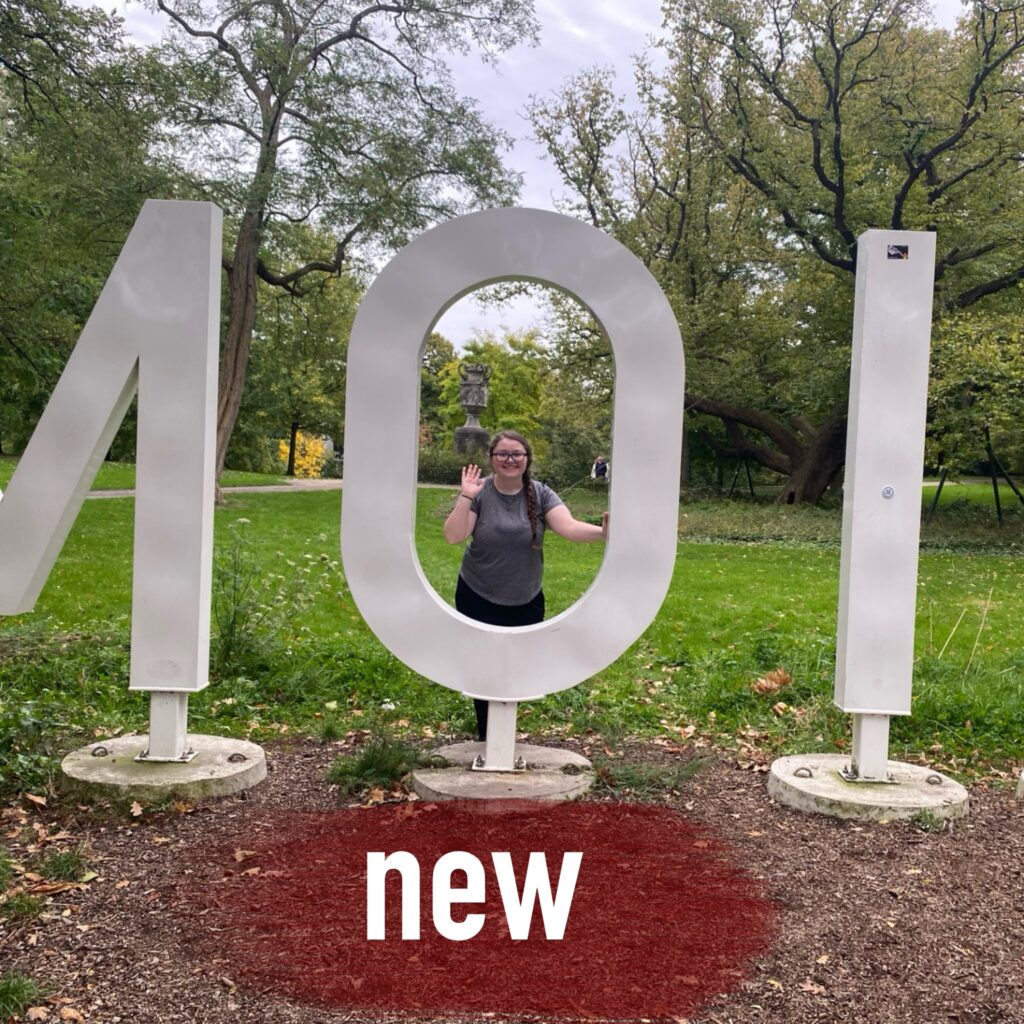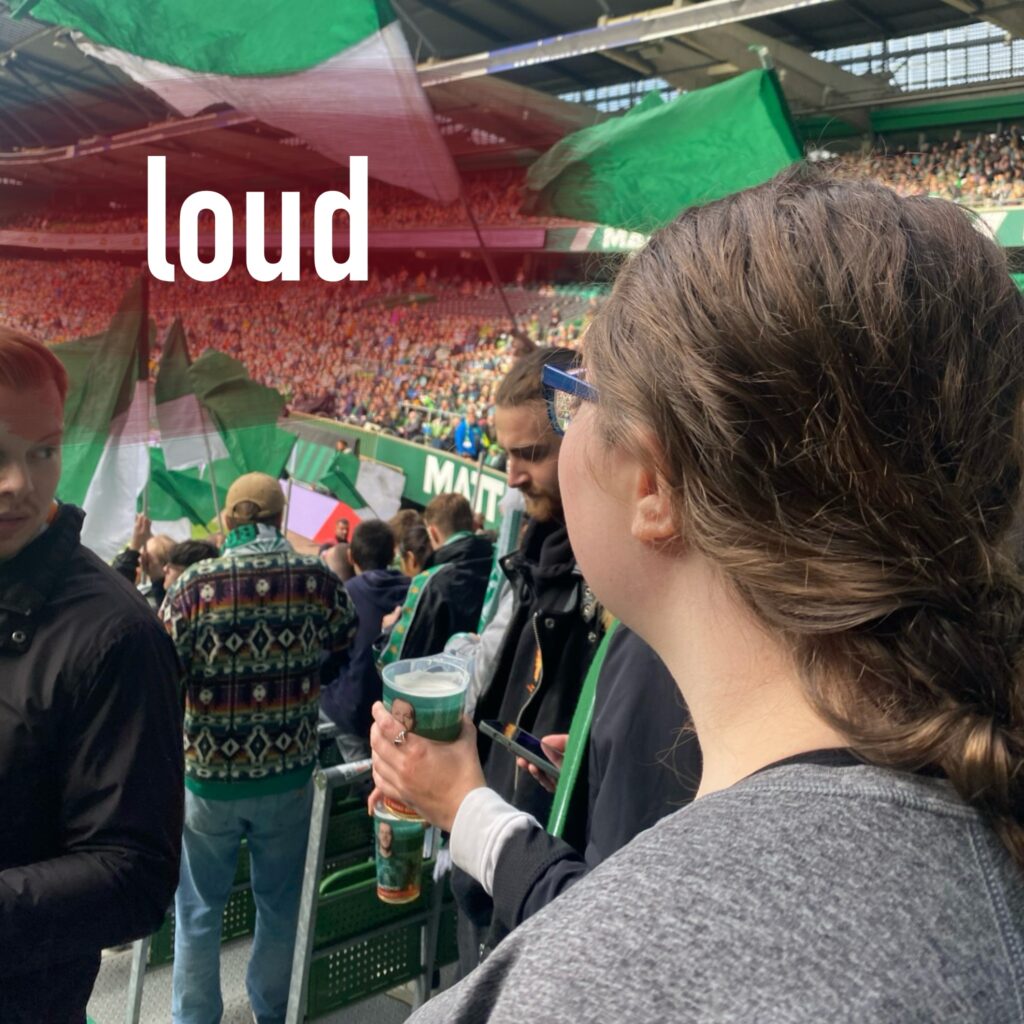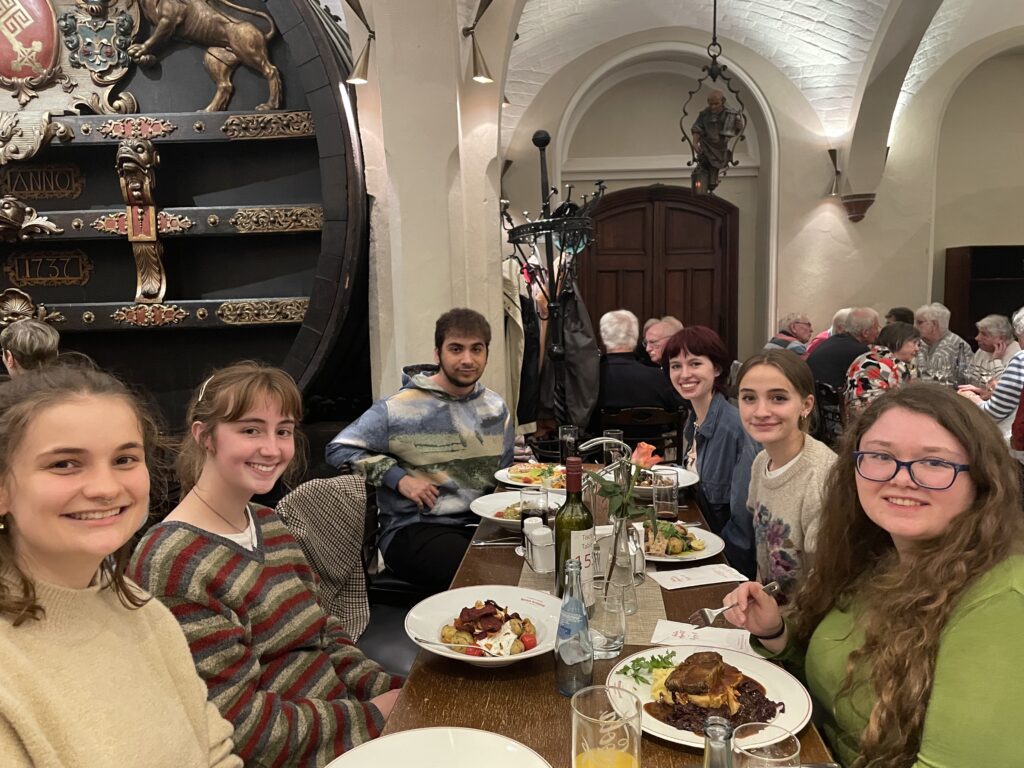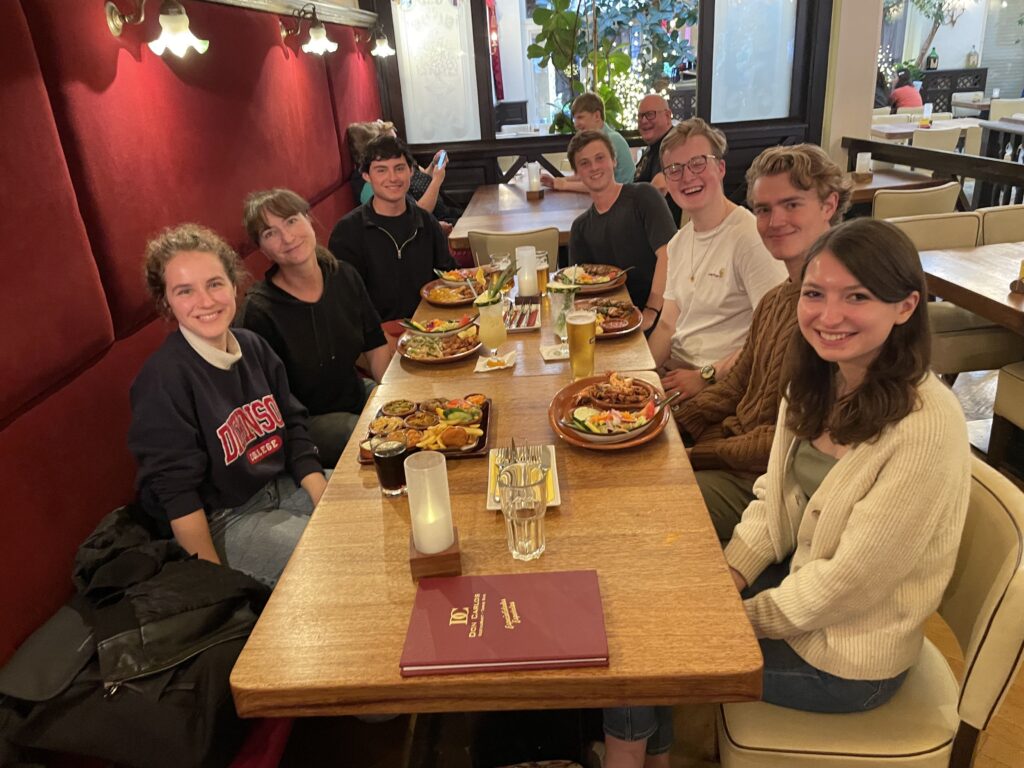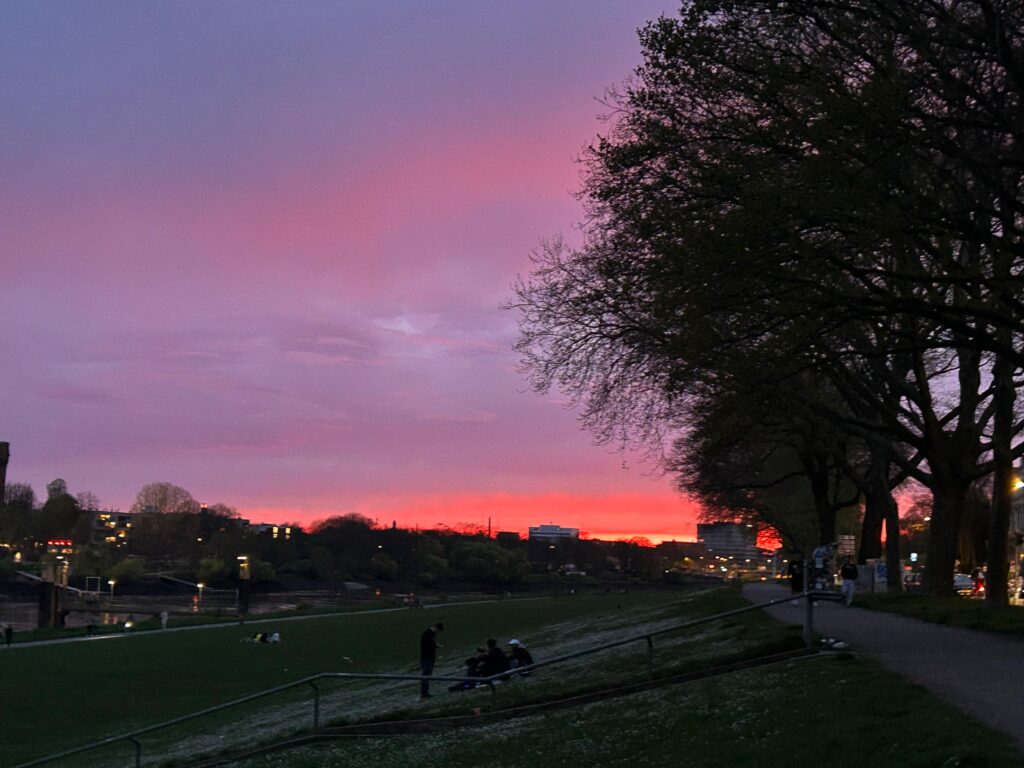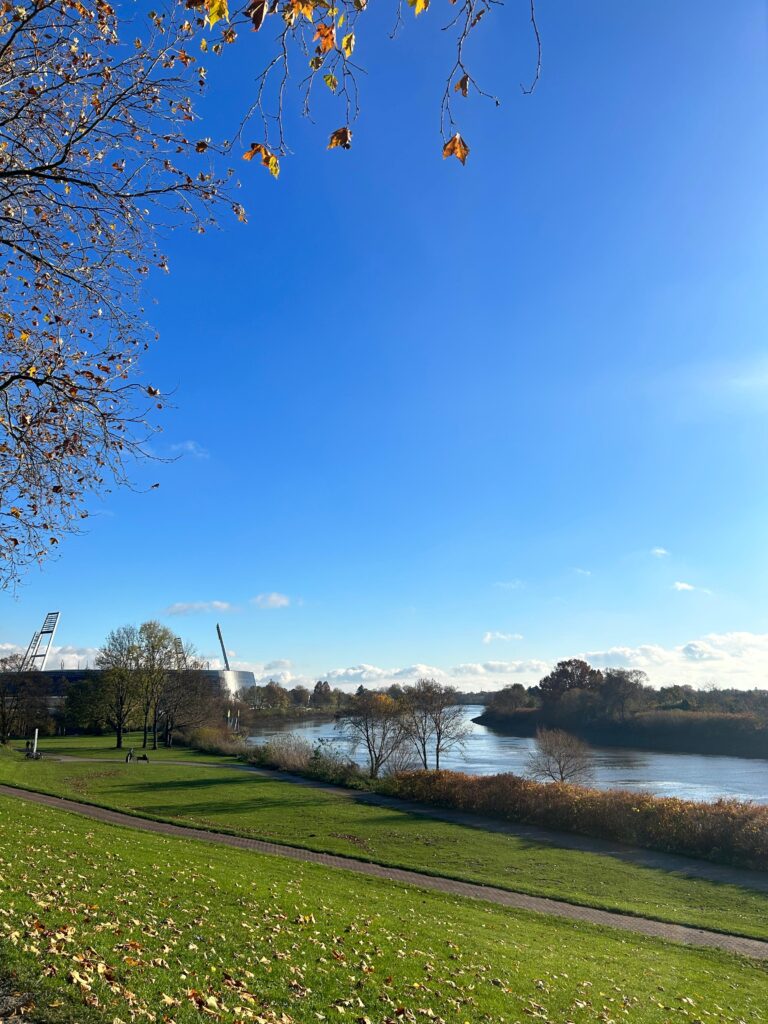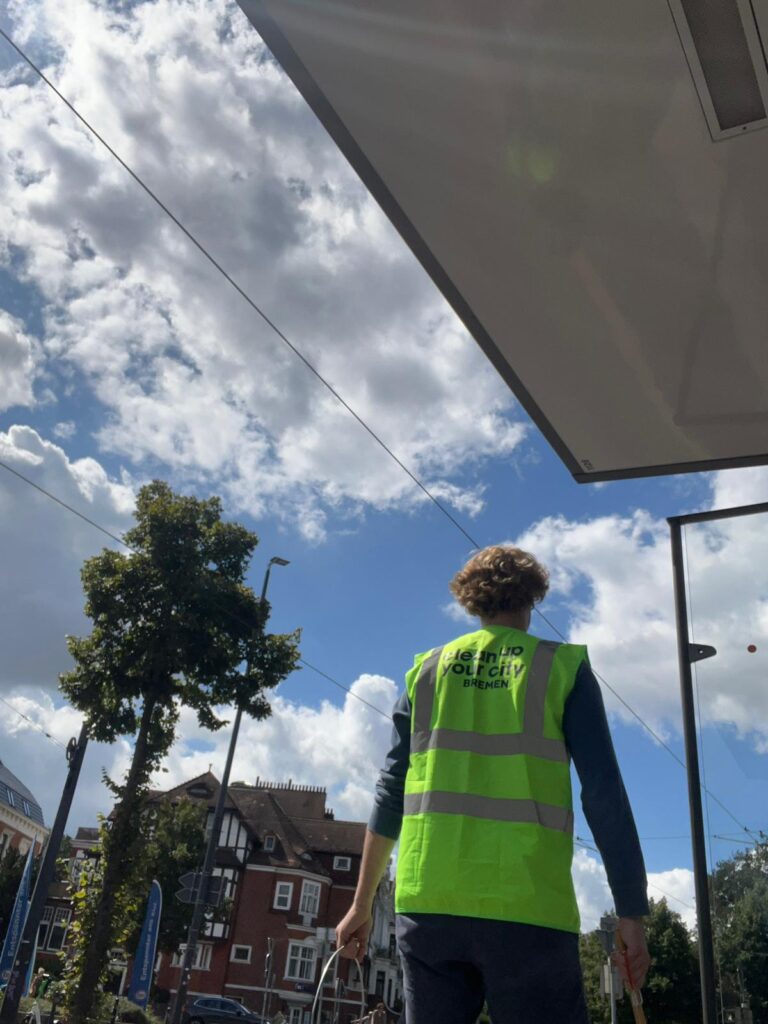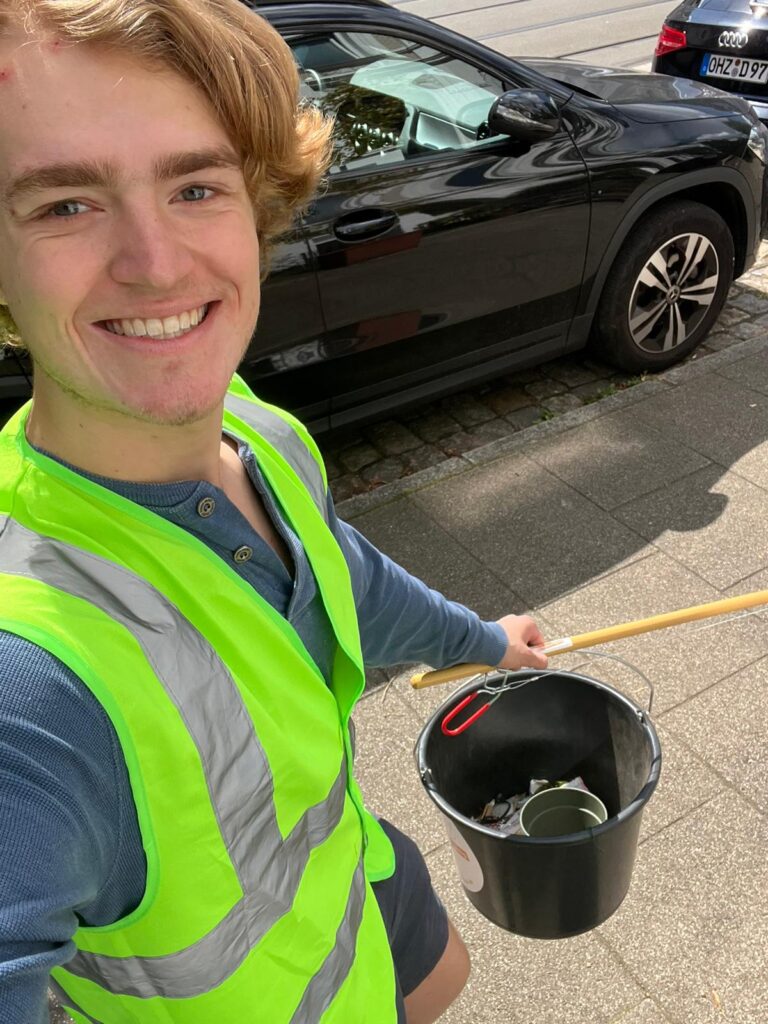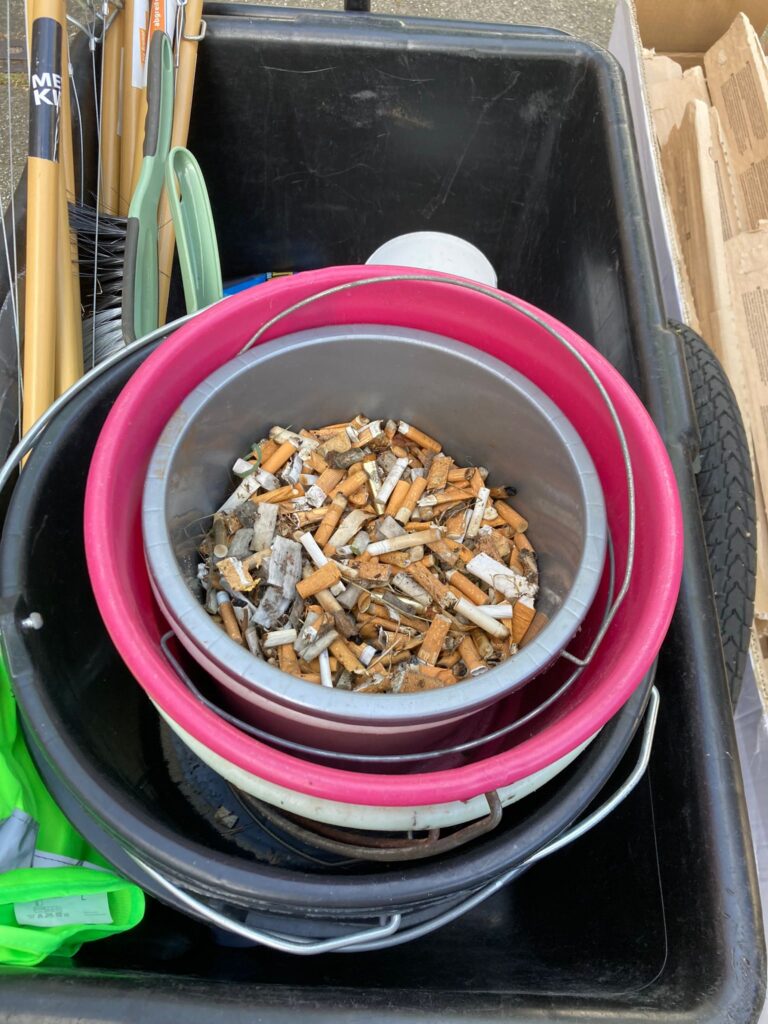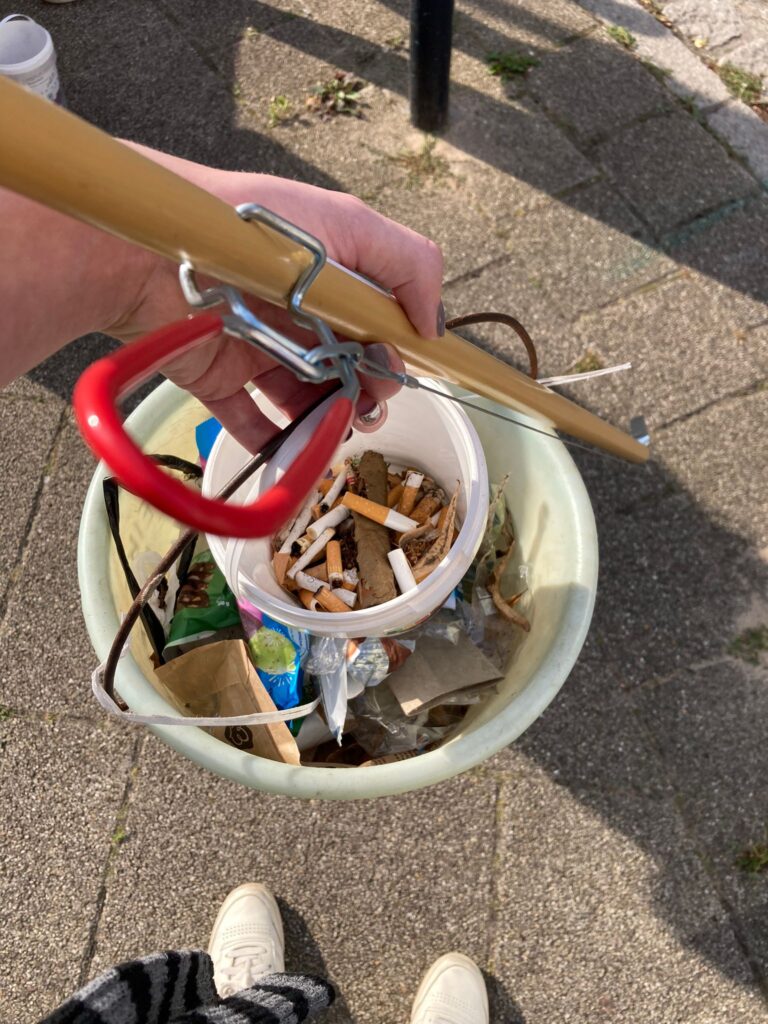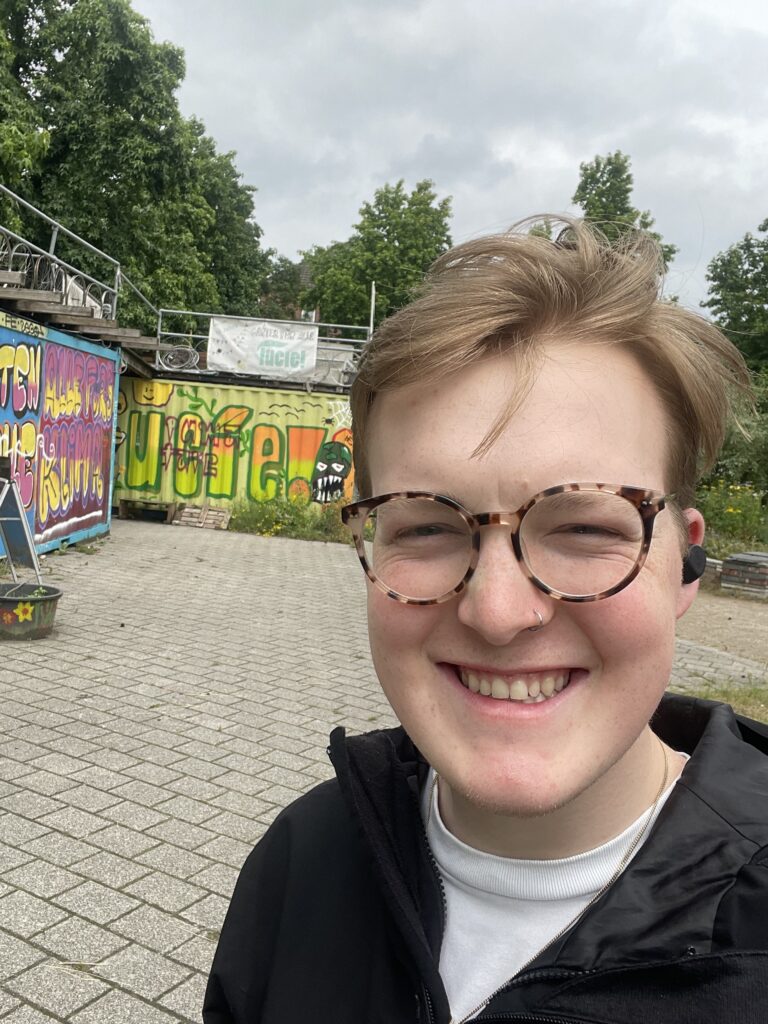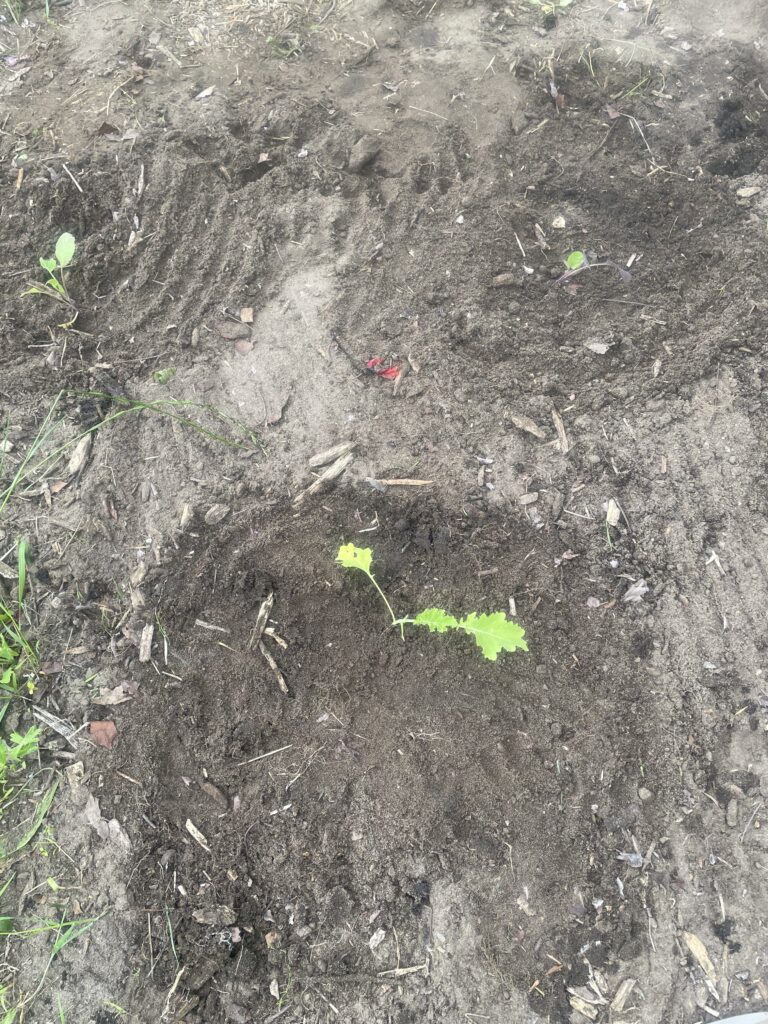by Grear Boyd ’25
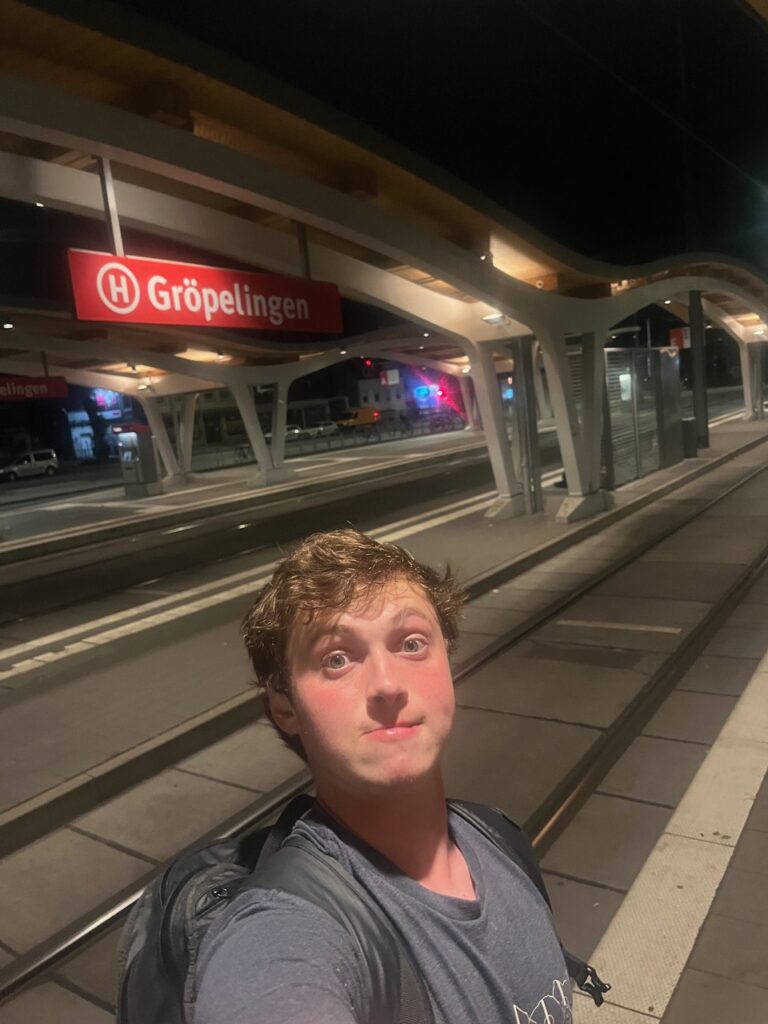
At the tram stop in Gröpelingen!
As an exchange student living in a foreign city (and nation at large), you must overcome a number of difficulties that will likely vary from person to person. For me, one of the first obstacles I had to face was navigation. In the US, I was accustomed to driving a car to get everywhere and needing directions only for longer trips or infrequent routes. When I arrived in Bremen, it didn’t take long for me to realize how reliant I had become on my car and how little I now knew the area I would be living in for the next six months.
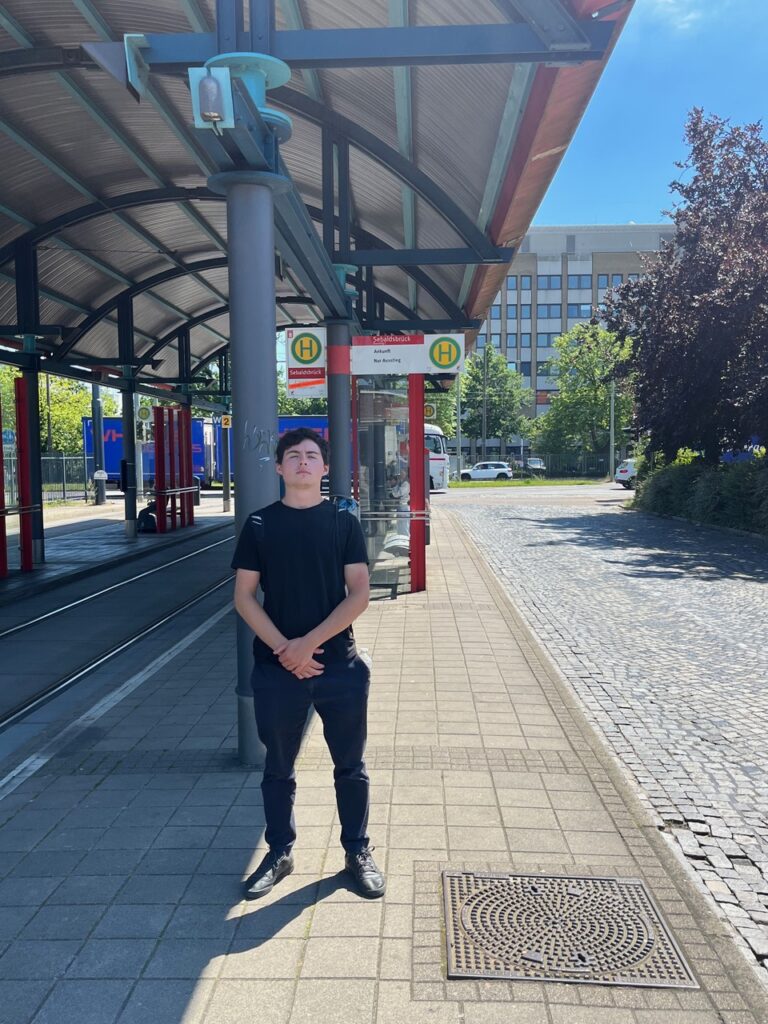
In Sebaldsbrück with fellow DiB-student Riley!
My first couple of days, my only method of transportation was by foot. I wandered the city for hours in an attempt to orient myself and get a solid lay of the land. I failed, or so I thought. I would attempt to find something of interest and get home by using just the street signs. And each time I left my beautiful Walle, I was forced to use Apple Maps (it’s superior, Riley) to return home. I was thus convinced that my undertaking was futile. And it wasn’t until a little later, when I went out with some of my Dickinson in Bremen compatriots, Riley and Gabe, that I reaped the fruit of my ventures.
I was out on the town having the time of my life when I realized my phone’s battery had died. Catastrophe, I thought. So I did what any rational man would do… I devised a plan to board a tram at Hauptbahnhof (HBF) and wait until I recognized something or got back to HBF. Luckily, I guessed correctly on the first attempt. The glorious N10 swept me off my feet and carried me to the Walle TV tower, which I easily recognized and from where I successfully walked home.
But before my tram-10 success story, I had found the use of the Deutsche Bahn train system to be a little daunting. I had stepped on my first train not realizing I was supposed to have already bought my Deutschland Ticket on the internet. I attempted to buy a day pass on the ticket machine but quickly gave up trying after a few moments of struggle and a couple of impatient Germans waiting behind me (-they were really intimidating). So, I crossed my fingers that I could get a few stops down the street without hearing “Fahrkarte Bitte!” (I know I know, I’m sorry). I got off without a hitch. Phew!
After my initial issue of the acquisition of a train ticket was resolved, I was faced with another troubling but later quite hilarious (I think) phenomenon. The German stare. I had come to the realization that every time I would take a seat on the fabled number 10 tram to Sebaldsbrück, I was the subject of an intense staredown with any number of my fellow train go-ers. At first, I thought it was all in my head. “Why in the world would these people take such consistent interest in me? I must be the most interesting man in Bremen” I thought to myself. (Kidding, but they really made me feel like the Dos Equis guy.) But after several back and forths of making eye contact with strangers and looking away (and more than a few staring contests) I decided I was, in fact, not making it up.
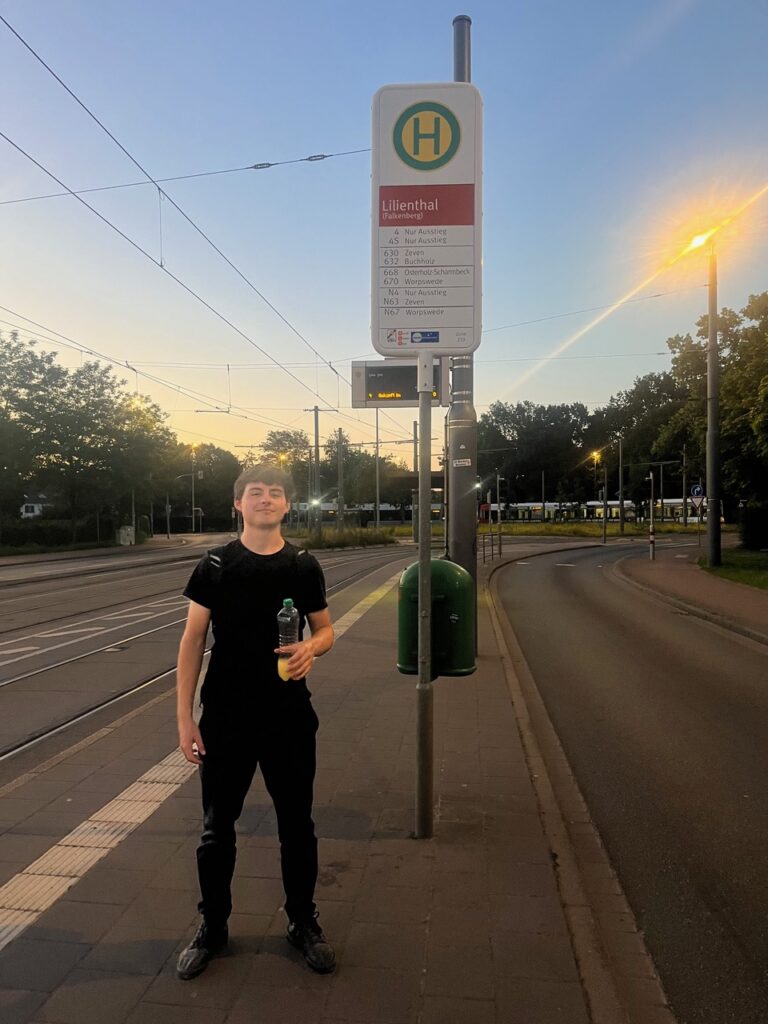
Lilienthal: the final destination of tram 4 (featuring Riley)!
At first, I was uncomfortable with the idea of people staring at me on the train. But it wasn’t long before I concluded that beating the Germans at their own game offered me a surprising degree of satisfaction in such an unfamiliar social environment. In other words, each day on my ride to class, or DOMSHEIDE!, or wherever else, I won staring contests for fun. Yes, I said won. I’m not sure how my own death stare made those who I deemed to have gazed upon me for slightly too long feel. But that didn’t matter. In my eyes, it was still not polite to stare so my retaliation was justified. Just joking. I came to learn that I was not the only one to notice the frequency of these staredowns and, upon the questioning of Dr. Ludwig, the DiB students and I found that staring at people in public is simply not considered rude in Germany. Go figure.
Anyways, the moral of my story is this. Placing yourself in an entirely new environment, such as an immersive semester in Bremen, with relatively few guard rails is, at times, a bit challenging. But that presents an opportunity for growth. In my situation, my apprehension of the Bremen tram system was, in reality, short-lived. I quickly learned to take advantage of Bremen’s tram system.

Exploring Bremen via tram.
Towards the end of our time in Bremen, my associate Riley and I even rode each tram to its terminal just for chat. Across our program, I think we all came to love Bremen, and Germany at large, for its public transport systems. A monthly pass to train anywhere in the country? I have yet to find anything similar to that anywhere else I’ve been so blessed as to visit.
